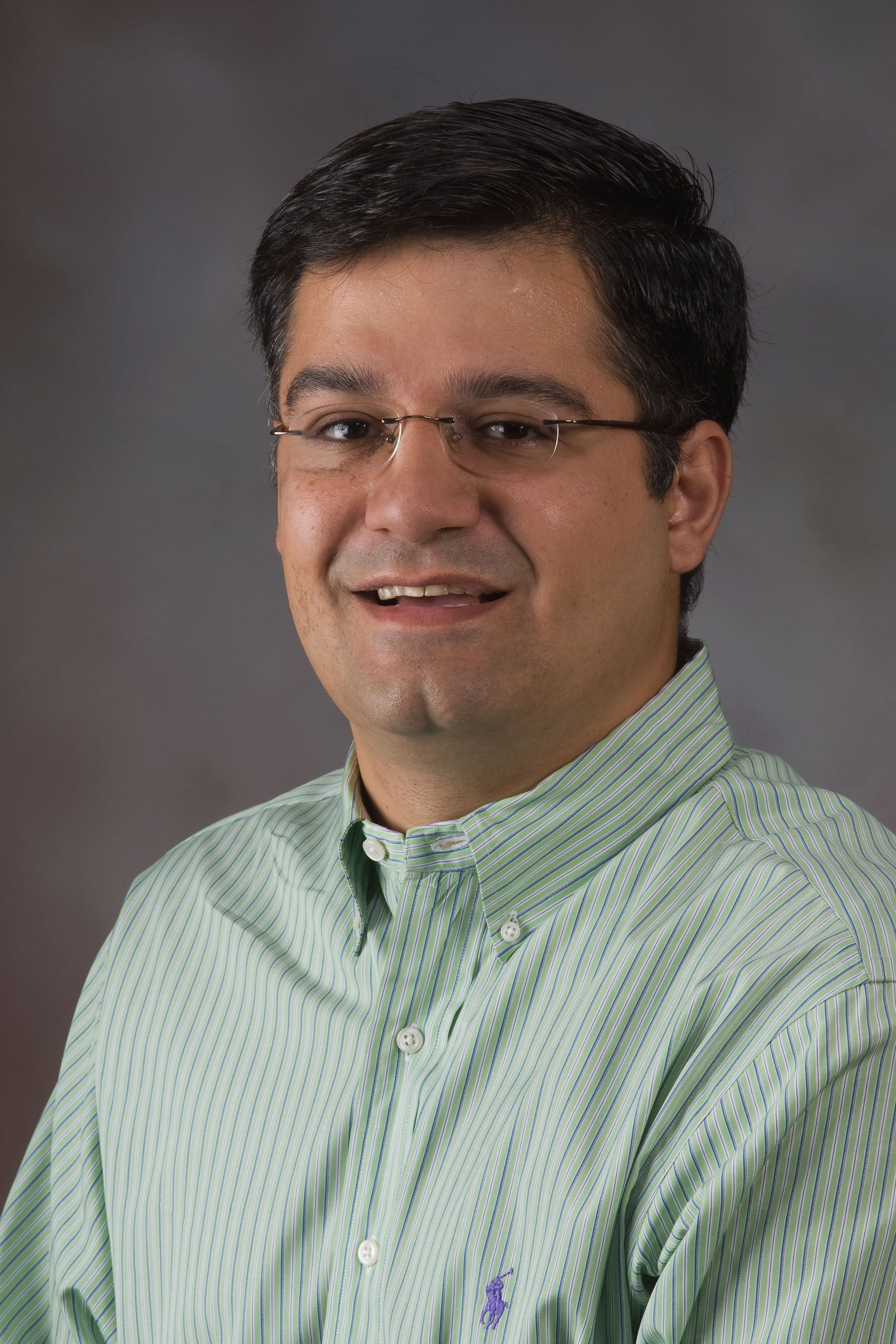Powe Award supports infectious disease research

Pablo Sobrado, assistant professor of biochemistry with the infectious disease research group at Virginia Tech, has received a Ralph E. Powe Junior Faculty Enhancement Award for his research on enzymes that are essential for infection in two important human pathogens.
Oak Ridge Associated Universities (ORAU) presents the Powe Award to faculty members who are in the first two years of their tenure track as an investment in promising achievements in an important area. The award to Sobrado will support his research on the mechanism of iron acquisition by Mycobacterium tuberculosis and Aspergillus fumigatus.
Iron is essential for all life. M. tubercuolis and A. fumigatus need iron in order to replicate. The level of free iron in humans is lower than the required concentration for these pathogens to survive. To overcome this limitation, these organisms secrete molecules called siderophores to obtain iron from the host.
The iron-siderophore complex is then taken by the microbes, increasing the concentration of iron to satisfy their metabolic needs and enable infection. The synthesis of siderophores in M. tuberculosis and A. fumigatus requires special enzymes (hydroxylase) that are dependent on the cofactor flavin adenine dinucleotide (FAD). The function of these enzymes is essential to form the hydroxamate potion of the siderophore, which binds the iron molecule.
"There is no information about the mechanism of action or the structure of these enzymes. Our group will be a leader in the study of these important enzymes," Sobrado said. "If we can learn how it functions, we can perhaps identify inhibitors that can be developed as antibiotics or antifungal agents," he said. "Since humans do not have siderophores, an inhibitor should not be toxic to us."
Using modern biology techniques, Sobrado's group is the first in the world to obtain recombinant functional siderophore hydroxylases from M. smegmatis (a model organism of M. tuberculosis) and A. fumigatus. "We have been able to obtain highly active enzymes with FAD bound; this will allow us to elucidate the three-dimensional structure and the mechanism of action," he said.
The structural work is being done in collaboration with Andrea Mattevi, professor of molecular biology, who coordinates the protein crystallography group at the University of Pavia.
Sobrado's team includes graduate and undergraduate students. "It is an opportunity for undergraduates to learn about protein engineering, how to develop assays, and to do protein purification," he said.
Sobrado is affiliated with Fralin Life Science Institute, an interdisciplinary research center at Virginia Tech, whose purpose is to bring scientists from different disciplines together under one roof to solve some of biology's more complex challenges. The infectious diseases research area of the institute focuses on reducing and managing emerging and re-emerging infectious diseases including prevention and control, infectious disease ecology and epidemiology, molecular pathogenesis, and host-pathogen interactions.
Sobrado received his Ph.D. in biochemistry from Texas A&M University. He was a postdoctoral associate at the University of Chile and the University of Wisconsin-Madison before joining the faculty in the College of Agriculture and Life Sciences at Virginia Tech.
The Powe Award competition permits only two applications from each of ORAU's 115 university members. Both Virginia Tech applicants were selected. The second winner is Jeremiah T. Abiade, assistant professor in the mechanical engineering and the material science and engineering departments.




